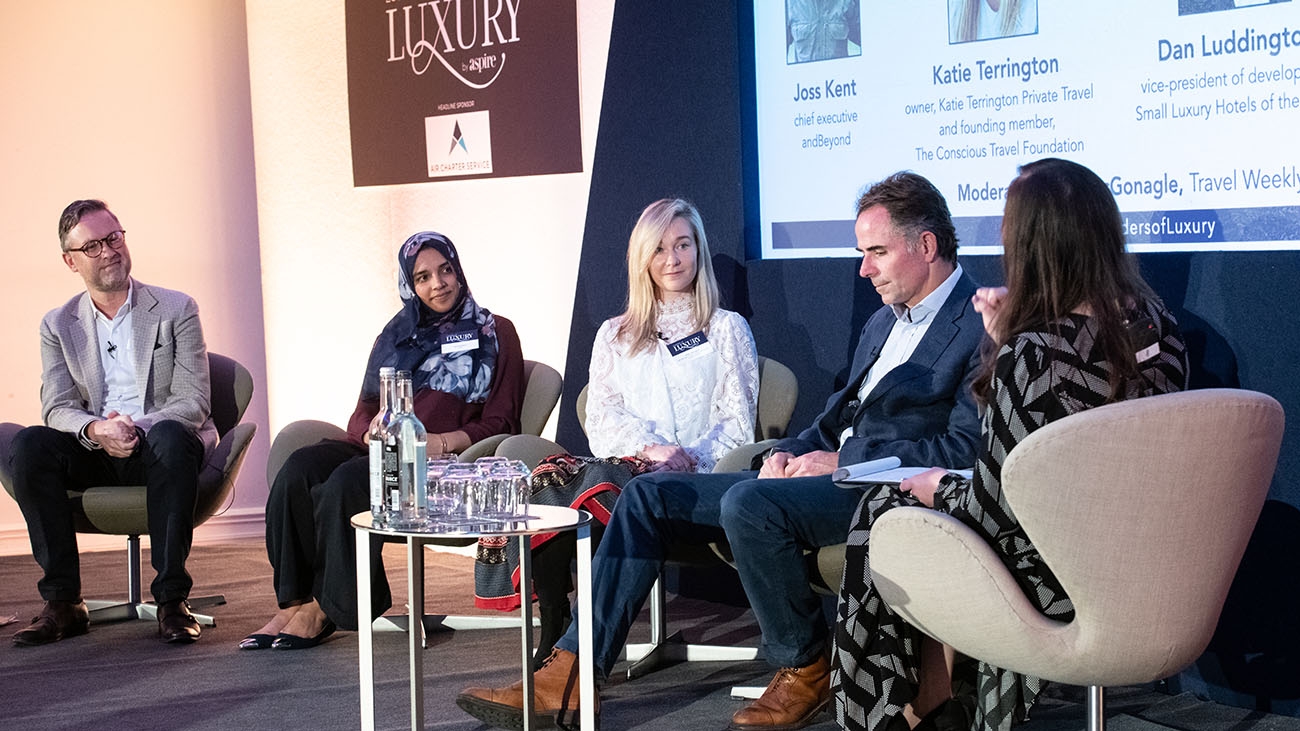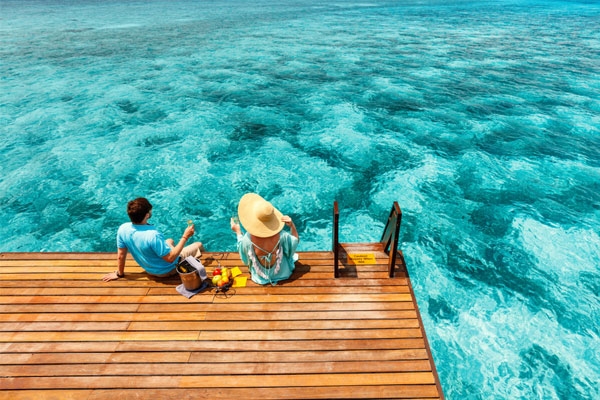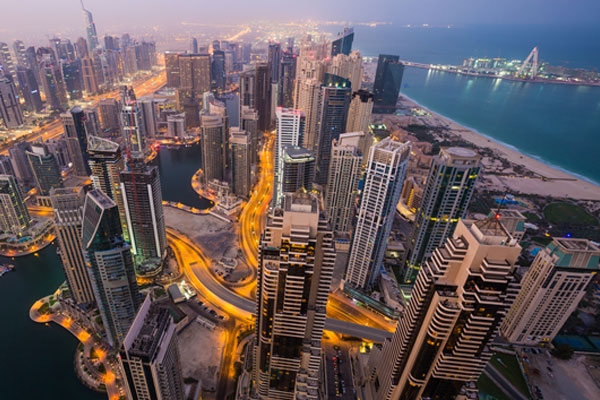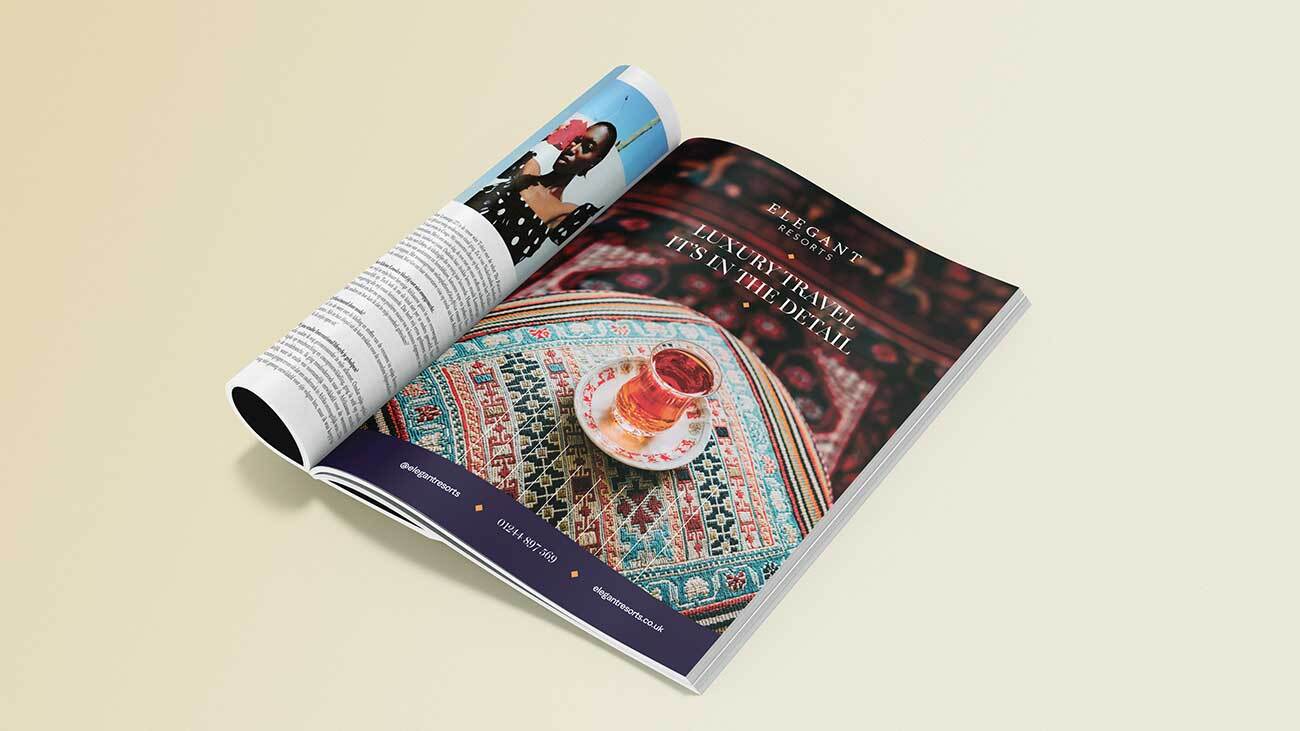Key sustainability issues highlighted by luxury travel leaders
An expert panel at last month’s Leaders of Luxury conference hosted by Aspire dissected the current issues surrounding sustainability and responsible travel.
Sustainability must go ‘from top to root of tree’
The chief executive of Africa specialist operator andBeyond said travel companies must weave responsible travel into the whole experience in order for it to be a genuinely sustainable operation.
Joss Kent said sustainability must “go from the top of the tree to the root of the tree”.
“We look at every element of it from local employment, local supply chains, the actual environmental sustainability of the build and everything that goes into it, all of the shared value with the local communities, right through [to] the things that are now quite prevalent pre-Covid in terms of plastic eradication, reduction of water usage,” he said.
“So for us, it's much more a holistic view about how you do it. Our whole company is built around that holistic view so we have a triangle of care of the land, wildlife and people. In the middle is the guest.
“The whole purpose of the triangle is to conserve habitats and ecosystems. The guest pays for it all and it has to be sustainable to do that. So we take a very holistic view of sustainability from top to bottom. You can pick off bits of it - so climate change right now is topical with Glasgow - but for us, that's just an umbrella piece.
“All the things we deal with are on the ground, in the ecosystems, the biospheres and the communities and if you’re not ingrained in all of those, you’re not a sustainable operation.”
He added: “It's not just game drives twice a day and three meals and a massage. If that happens then if I haven't done my job. I read 60 guests feedback email a day to find out what that guest has actually thought, what was the experience they had. When I know I’ve hit nirvana is when they come back and they tell me the story of our impact model through the experience they had.”
Carrier’s content and publishing manager, Byanne Akbor, agreed that a company must champion sustainability at its heart. Akbor was a founding member of the tour operator’s CSR committee, which was set up in a bid to ensure the company is operating responsibly.
Akbor said: “We’ve got four different pillars, and it started with our people, so it's what we're doing in terms of diversity and inclusion within our workforce as well as at home, so minimising our carbon footprint within the office.
“[We also looked at] our locale - how we are good neighbours to the people that we have around us in Manchester, and making sure that we're setting up volunteering days, paid days leave that staff can take to ensure that they can spend [time] on a project that they feel passionately about. And then the last pillar, our world, which is probably the biggest pillar and is to do with the holidays that we do sell.
“Sustainable travel is just a tiny arm of all these areas that we're trying to cover off. But they're all quite important.”
‘Trade has a responsibility to steer clients in a sustainable direction’
Agents were told they have a responsibility to steer their clients in the right direction when it comes to sustainability.
Katie Terrington, owner of Katie Terrington Private Travel and co-founder of The Conscious Travel Foundation, said responsible travel isn’t “high on [clients’] agendas” but she still actively promotes sustainable alternatives.
“I see my role as a travel advisor as presenting them with options,” she said.
“I often find that it’s when clients go to the property, they then come back and their eyes just open to all the incredible things that those properties might be doing.
“So it’s almost steering them in the right direction. And if you’ve done the right job in matching them up to a product – that is not only incredibly spoiling but is doing all of the right things on the ground – then that journey has started for them.”
She added: “For me, it is all about making sure that the choices that I am making or presenting to the clients really are delivering on every single aspect. So yes, it's obviously the property, it's also the DMCs, it's the guides, it’s absolutely everything that goes into the side of that trip.”
Carrier’s Byanne Akbor agreed that responsible travel is not front of mind for the operator’s luxury consumers when booking holidays, but brands are in a position to change that.
“Working in the marketing and communications team, the biggest challenge for us is getting that message to the end customer,” she said.
“Is it something that they're asking for? It's probably an unpopular opinion, but in the luxury industry, no, the clients aren’t asking for it when they’re getting on the phone to us, but we've internally spoken about this and tried to get to the reason why.
“I think the sentiment is there and everybody knows that they should be doing more and doing well.
“But when it comes down to it with high-net-worth individuals, they want it to be convenient for them. It's expected that whoever they're booking or travelling with [has] looked after this, and so when we're able to communicate that to them, it's a bonus for them.
“So as a tour operator our stance is very much educate, inform and inspire and make sure that those are the things that we're getting across to them in order to help them make better decisions.”
She added: “Our portfolio is massive. We work with a number of different suppliers and they are all on different levels of this sustainability journey so it’s just making sure that we are putting the properties or people on the ground that are really making progress a spotlight.”
‘Airlines are targeting sustainability more aggressively than some hotels’
Airlines wrongly get “a bad rap” in the fight against sustainability, according to the chief executive of andBeyond.
Joss Kent said the Covid-19 pandemic had done “the best marketing job” for sustainability, with more consumers plugged into responsible travel than ever. But he maintained aviation shouldn’t be the target.
“Airlines always get a bad rap, but actually they do a very good job in most cases and are far more aggressively targeting this issue than some big hotel groups or other travel sector,” he said.
“I think air travel is now about two and a half percent of global co2 emissions. Meat consumption is 41% of 15% of co2 emissions from farming animals. So if you just do the maths, you just have to half meat consumption to wipe out the entire emissions of the airline industry, just as a choice.
“So for me, it's illogical to be hammering at the airlines the whole time. People are still going to travel, you're not going to stop global travel. That's just unrealistic. It's you deal with that, how the airlines create renewable energies to offset, you've got electric planes now - they will get there.”
‘Cop26 has made sustainability more mainstream’
The panel discussed what impact Cop26 had had on consumer sentiment around responsible travel.
Byanne Akbor, Carrier’s content and publishing manager and founding CSR member, said the conversations in Glasgow had helped elevate the sustainability message to a “mainstream” audience.
“Cop26 hasn’t changed our approach, we were already looking into [these areas] already,” she said.
“As much as it [might not have got] the results we were expecting or hoping for, it has put it out there in the mainstream and it has got people talking about it and that can only be a positive thing.
“If there’s anybody out there in travel who hasn’t started to look at this, then now is the time to do it and if anything they will realise how important this topic is.”
But andBeyond’s chief executive Joss Kent disagreed, arguing that there is a “complete disconnect” between the conversations in Glasgow and what is happening within the luxury travel sector.
He said: “Glasgow [was] a complete disaster and nothing of any materiality was signed; there were pledges made that will never be met, and in the environment I live in, which is the hard impact on the ground, these conversations are so far removed from what I’m dealing with on a day-to-day basis that I don't have any great faith in what came out of Glasgow.
“As far as the luxury sector is concerned, I think there's a big gap between what is talked about on climate change and actually what's happening within the sector.
“In the sector itself, it's just all too slow. We're still on the box ticking exercise and certification is really difficult now because it's hard to know what to sign up to. There are 250+ certification bodies but what does it mean? Who do you trust? What is greenwashing and what is not?
“For us, we've avoided all external certification, which has held ourselves to account. We align it with the UN Sustainable Development Goals as a framework, but we've set those targets ourselves and then we mark them up and publish them every year. When we miss it, we miss it and we publish it. Luckily for most of those, we hit our own targets.”
However, Dan Luddington, vice president of development at Small Luxury Hotels of the world, argued third-party verification is essential to ensure you’re a truly sustainable operation.
“Avoiding greenwashing for us means you do need some level of third-party verification,” he said.
“Don't just take our word for it. This hotel has gone through an audit that has been verified against those three pillars.”
He added: “It’s [about] storytelling and quite frankly, some of the hotels just don't think to tell those stories. For 30 years, they've been embedded in their cultural heritage - a boutique hotel by nature champions everything local and cultural - but they didn't really talk about it in the sense of how they help the community. So inspiring storytelling, that's how we talk about those other pillars.”








